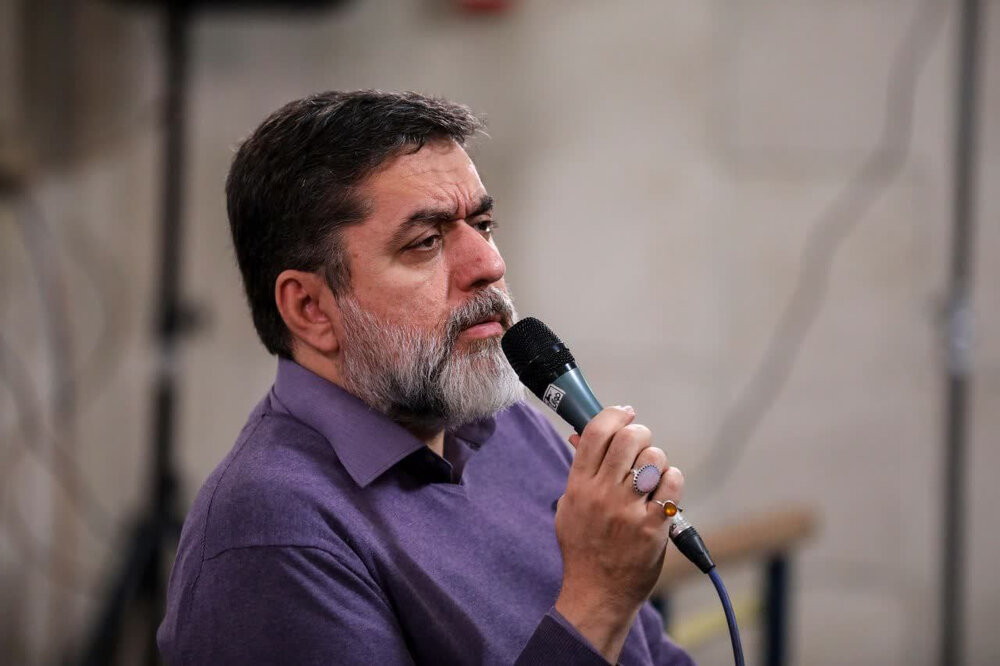Have the narrative of the producer of “Red Khoon” about political filmmaking/tolerate cursing! – Mehr news agency Iran and world’s news


According to the reporter of Mehr, Mahmoud Razavi attended the question and answer session and recording of his works, which was held last December 19 as part of the special program of the 13th Ammar Film Festival. In this meeting, he mentioned a part of these experiences in making movies and series such as Mearaji.
Mahmoud Razavi initially said in response to a question about the films that are labeled: lable eaten the most Works of Iranian cinema have been seen on TV. current the most The Iranian movie is “Gold Necklaces” and all types are against it propaganda It was done, but when the same movie was aired on TV, even the other party saw it and commented on it.
He added: If the work can create a narrative, it can bring the audience along with it. The other side tells a false narrative, but it tells this lie in the right way.
In another part, the producer of “Nimroz Story – Trace of Blood” said in response to a question about whether political subjects are classified: “The story of the hypocrites was left for years until we went to make “Nimroz Story” and this means that this is classified. Not a subject. when you say Classification is as if it is in a safe and anyone can touch it if they are tall and have a beard. This mental image is wrong. Did Saeed Malekan have special access to make “Roz Safar”? Or did he go and write the script and then look for support?
Political work requires tolerance of cursing
Referring to the challenges of making a political film, he said: Political work and contemporary history require iron shoes, a lot of patience and tolerance for cursing, even if he has a long beard, he requires tolerance, not listening, but again, I say this does not mean classifying the subjects.
There are many challenges, if they give me an amendment I will feel bad, but that does not mean that there is a barrier. Every director has principles and rules, and the combination of these becomes the rules of the film
In response to another question about the challenge of making social films, this cinema and television producer said: From top to bottom, the topics have been told in the darkest possible way, inside and outside, and they make these, let’s look at the films of last year and earlier.
Stating that about 50 to 60 percent of the films are social cinema, he said: There are many challenges, if they give me an amendment, I will feel bad, but this does not mean that there is a barrier. Every director has principles and rules, and the combination of these becomes the rules of the film.
In response to a question about the fact that only some people can go to specific subjects or that you can go to social subjects with relationships, he said: “Did Saeed Raushit have any connections when he entered the cinema and made work?” He was seen by his efforts. He persevered, followed up and did a good job. You can’t make a movie with thin orange. Hossein Darabi, Mahdovian, Saeed Malkan as a director, De Namaki all succeeded in their first works because they tried.
It is not important to just make a work about prayer or a martyr who defends the shrine
The producer of the series “Pardeh Neshin” further stated about the importance of content and form together: Content is not just saying an important item or, for example, an important subject. Saying that we want to create a work about prayer or a martyr who defends the shrine does not indicate the mere choice of a work topic. How to open the issue and tell the story become important in the documentary, the story is also important and if the narration is correct Presentation You are successful.
Razavi, who these days is the producer of the series A “Mosei”, also explained about the importance of producing and why he did not turn to directing: I think The most effective Every person is a producer, a producer is not a bank, and it is different from an investor and project manager.
He continued: Content and editing belong to the producer, what is the procedure, what happened, and even some cases, such as editing under the supervision of the director, are agreed upon. In a professional mode, from creating an idea to bringing it to TV, it is under the supervision of the producer.
Razavi said: Sometimes the director comes and makes a bet with the producer that the editing should be with me. Besides, they give the corrections to the producer, so the producer is the one who should be responsible.
In a part of this experience transfer meeting, the producer of the TV series “Mirajiha” narrated his bitter memories of the days of the explosion behind the scenes of this TV series and the testimony of a group of agents of this project.

